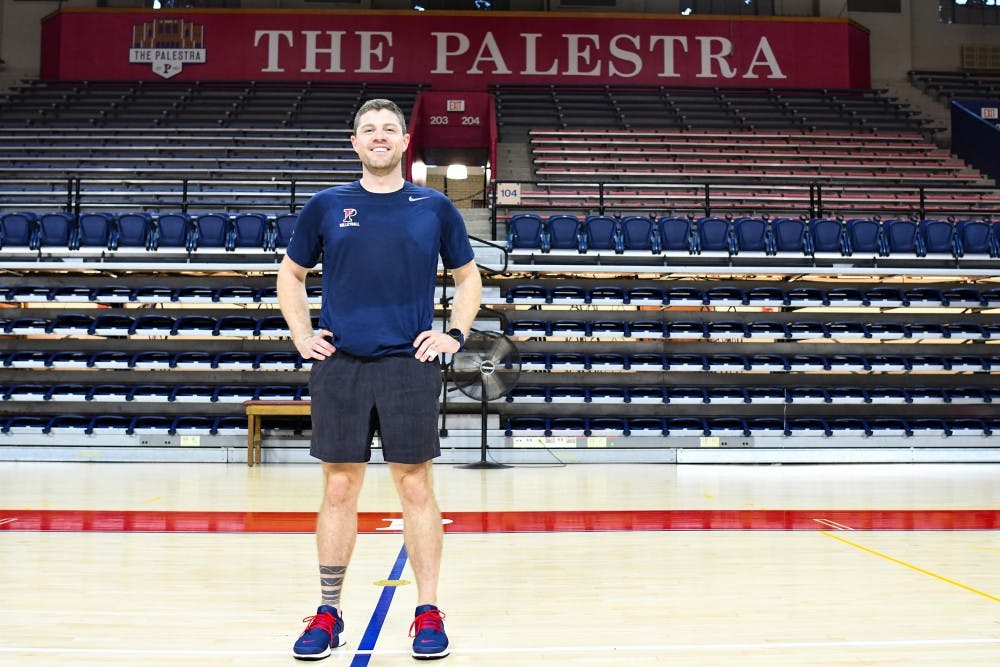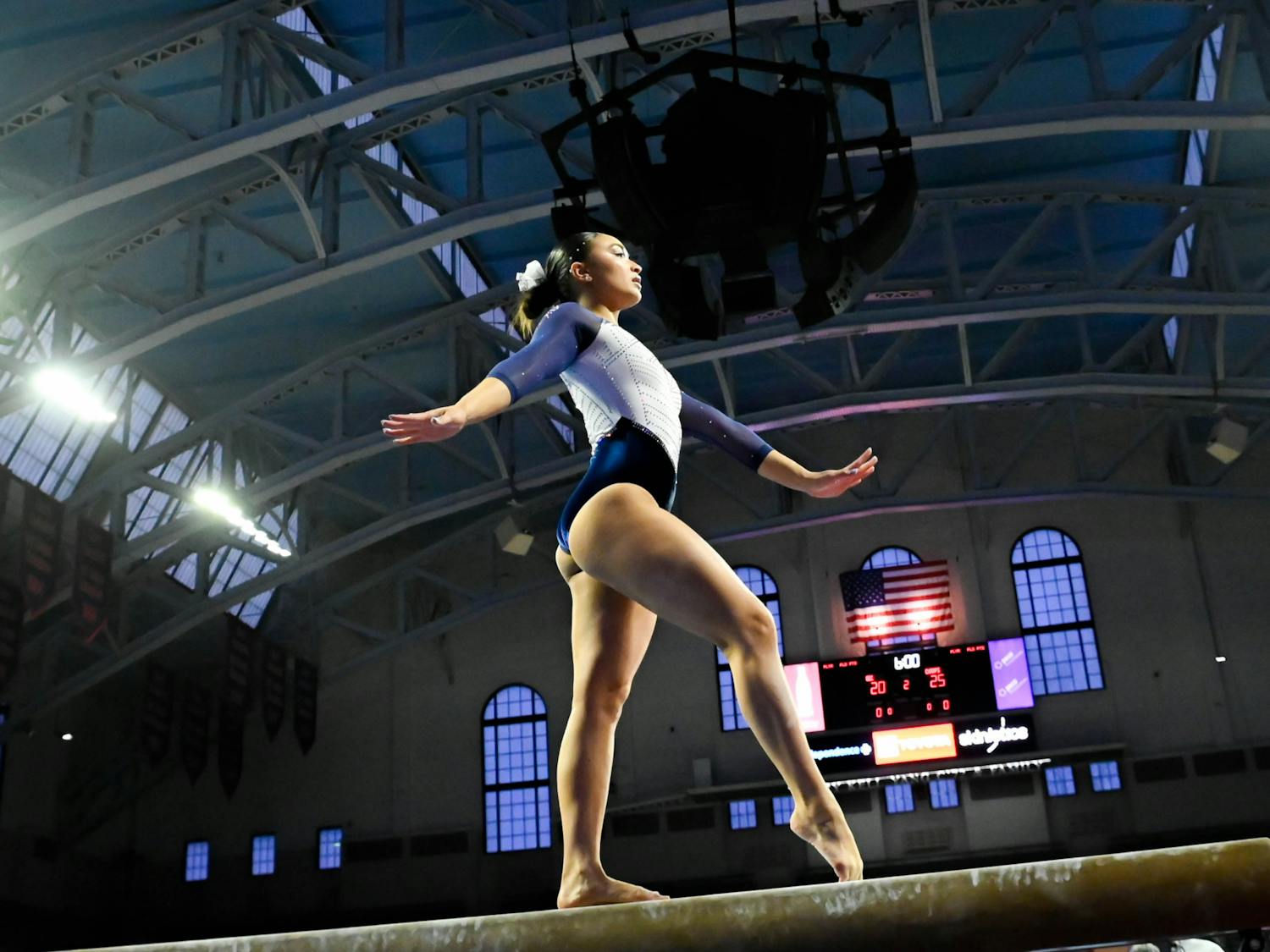For Penn volleyball, it’s time for class.
Back in April, Iain Braddak was brought on board as the Quakers’ new head coach, filling the void left by Katie Schumacher-Cawley after she left for Penn State. Now, with the season well under way, Braddak has brought his unique background and coaching style to the Red and Blue.
Braddak certainly has a history with volleyball. In 2012, he was tasked with starting the men’s volleyball program at Culver-Stockton College, while also serving as an assistant for the women’s volleyball team. He spent time as the head coach of the women’s teams at the U.S Merchant Marine Academy and Smith College, before heading to the Ivy League as an assistant coach at Columbia last season.
But Braddak’s specialty, what makes him such a different coach than most, is his background in education.
“I was trained as a physical educator and got my undergraduate degree at Springfield College and then my masters in advanced level coaching in sports performance, so a lot of my coaching style is actually teaching,” Braddak said. “I find that to help facilitate performance and to help people perform at their best, they need to be in an environment where they can take risks and learn and be pushed and challenged.”
Braddak’s skill set gives him a distinct perspective as a coach. Not only does he have a unique approach to fostering relationships and inspiring change, but the schools that he’s been at have all had different qualities.
And that educational training doesn’t just show itself on the court. At each of the schools Braddak has coached at, he has also taught classes. The classes have varied from school to school, but they have always centered around sports. For example, he taught sports psychology at the Merchant Marine Academy.
In a lot of ways, being a teacher is like being a coach. And Braddak leverages those similarities to make himself a better coach.
RELATED:
Three coaches in three years? Penn volleyball takes the challenge in stride
Penn volleyball's freshmen have shown that age is just a number
“There are certainly aspects that carry over, like organization and structure and research. The approach to the content is very similar,” he said.
While he isn’t teaching here this semester, it’s certainly something he’s considered.
“I would love to [teach here]. I don’t know if that opportunity will come up. I’m more likely actually to pursue a PhD here than to teach right away.”
As for the team he inherited, there is certainly work to be done. The Quakers have not finished better than fifth in the Ivy League since 2013, and are on their third coach in as many years.
But Braddak is eager to take on that challenge, and has a plan in mind.
“It was part of our conversations in preseason with the team,” he said. “The number one priority for us are our fundamentals, and number two is our mental game and our mental approach to what we do every day.”
He’s also trying to leave a lasting impact. Having a coach leave after one season can disrupt the culture of a team, so he is focused on rebuilding that as well.
“[We’re] really trying to leave behind something that will resonate for the girls that are going to take this program on once we’re gone," junior captain and libero Caroline Furrer said.
So, every time the Quakers step out on to the court this season, it’ll be an opportunity for them to put some of those new focuses into practice.
After all, their teacher will be watching.









